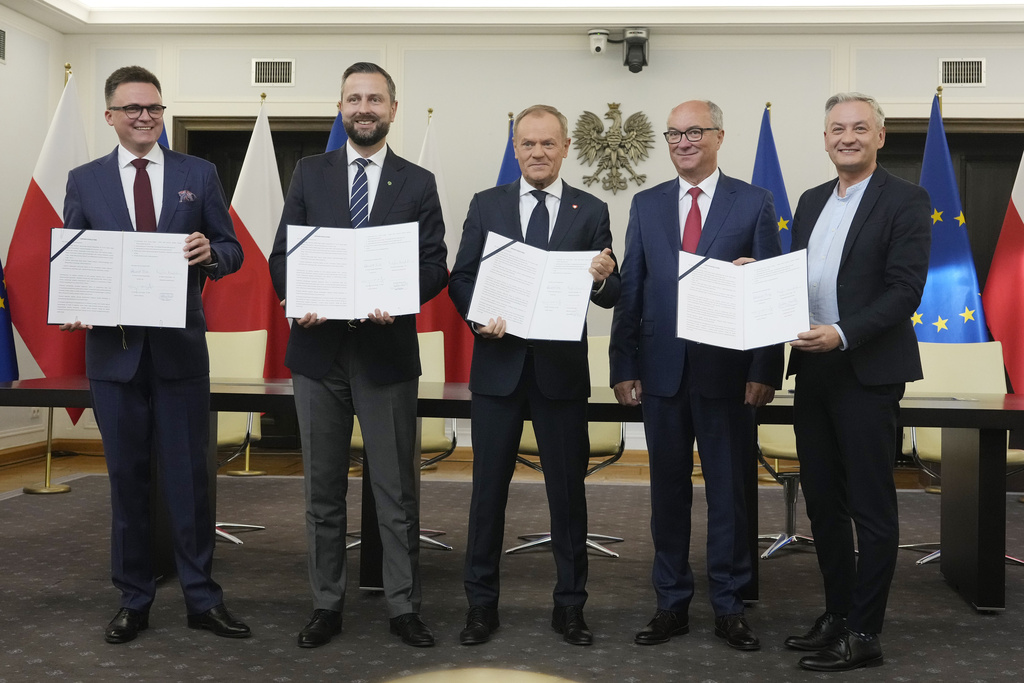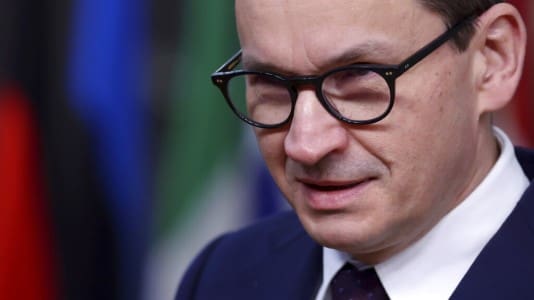According to former Polish President Aleksander Kwaśniewski, the detention and arrest of Mariusz Kamiński and Maciej Wąsik is “a possibility in a state governed by law.” I mention this opinion because it shows that even those who were previously able to maintain a certain distance from the ongoing war in Poland and should be the first to respect the office of the head of state have succumbed to emotions, joined the fray, and questioned the significance of the presidential institution.
There is no doubt that the source of the current conflict was the undermining of the significance of the right to pardon, a right which, according to the constitution, belongs to the president. Although influenced by the development of the situation — the imprisonment of the two PiS politicians, their announcement of a hunger strike, followed by pleas from their wives — Andrzej Duda changed his mind and decided to pardon them again, but this did not change the essence of the dispute.
The argument that the president can only pardon in cases with a final verdict is flawed. It contradicts past interpretations by the Constitutional Tribunal and the Extraordinary Control Chamber of the Supreme Court. Additionally, this view unduly limits presidential power, as it forces the president to wait for the end of lengthy legal processes, which can be manipulated by judges. This reliance on court decisions for pardons can politicize the judiciary and makes the right to pardon almost illusory, as seen in the cases of Ministers Kamiński and Wąsik, where the president had to pardon them again, affecting the prestige of his office.
However, the essence of the dispute is not a legal issue, but something else: It concerns the assumption adopted by the current ruling coalition, according to which it is not practically bound by laws and legislation enacted during the Law and Justice (PiS) government. This position is not only absurd but also harmful to the state’s interest. It would mean that there is a greater difference between the state governed by PiS and the state governed by PO than between the communist Polish People’s Republic (PRL) and the Third Polish Republic.
The current rulers behave as if they came to power not as a result of normal, democratic elections, but as a result of a coup and revolution — as if the Polish state lost its continuity during the PiS government. It is as if the state did not exist, and that it did not exist even more than the PRL did not exist!
This approach is also internally inconsistent, because if the Polish state was “corrupted and tainted” simply by the fact of PiS governance, then, consistently, the new government should not have agreed to be sworn in at the Presidential Palace. Similarly, it should not respect the veto power of Andrzej Duda, but rather pass laws in spite of the presidential veto, which would thus be “suspended.” If PiS governance so contaminated the state that there was a break in legal continuity, then the current government is also illegal and exercises power not as a result of elections (which could not have been valid), but as a result of a coup.
Thus, the parliamentary majority would transform itself into a truly revolutionary body, which would seize power on its own and rely on force. Everything that is impossible becomes possible if we refer not to law, but to violence. This means, in practice, ruling under conditions of a state of emergency.
Yes, this is a lot of theoretical posturing regarding former President Kwaśniewski’s words, because the government carries out its decisions, but it has nothing to do with a state governed by law. On the contrary, it is governance through chaos and which necessarily provokes growing social resistance. Violence must reckon with violence. For the state to use force without law, it must apply more and more force, because only in this way can it ensure obedience regarding its decisions.
It is easy to predict where this leads. It’s a road to nowhere.






